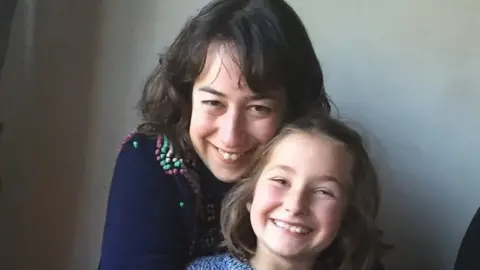Almost one out of every eight phone calls made under the Martha’s Rule scheme has led to a potentially life-saving change of treatment, NHS England has revealed.
The scheme allows rapidly deteriorating patients and their families who feel their concerns are being ignored to dial a phone number at the hospital and request an urgent review from a critical-care outreach team.
Merope Mills began campaigning for the scheme after an inquest found a change of care plan could have prevented her 13-year-old daughter Martha’s death from sepsis in 2021.
And on Tuesday, she told BBC R4’s Today programme she was “excited” by the early data on its rollout in 143 NHS hospitals across England.
Of the 573 calls in September and October, 286 (50%) led to a critical-care review, resulting in a change of treatment, such as antibiotics, oxygen or other medication, in 57 cases and a further 14 patients being transferred into intensive care.
Admitted to King’s College Hospital, in south London, after injuring her pancreas in a cycling accident, Martha died after developing an infection that led to sepsis.
 Merope Mills
Merope Mills“Losing a loved one in a preventable way compounds your grief and your devastation,” her mother told Today.
“But if nobody learns from it, nothing changes.”
Campaigning for Martha’s Rule had been “exhausting” but seeing people willing to learn from mistakes had helped her and her husband.
“There were definitely sceptics” at the scheme’s launch, in April, Ms Mills said.
She told Today: “There were people who said if you give patients this kind of power, they’ll call it for the wrong reasons – they will be complaining about food, they’ll be wanting a cup of tea.
“And we have the first clear evidence that this is not the case.”
“It’s clear to me that if we implement Martha’s Rule nationally, we can confidently say that it would greatly improve care, change the culture and save lives.”
Ms Mills highlighted an Institute of Global Health Innovation report of more than 15,000 preventable deaths in the UK last year, saying Martha’s Rule “could play a part in getting that number down”.
And she is calling for the scheme to be extended to all NHS hospitals, with posters and leaflets displaying the same branding.
“I’d really like it to be simple around the country and for patients to understand it in the way that they understand 999, and 111,” Ms Mills added.
NHS England says 2025 and 2026 will see further developments to extend the scheme and adapt it where necessary.
A similar scheme is being piloted by the NHS in Wales and considered in Northern Ireland.
And in Scotland, 2019 legislation already gives NHS patients the right to request a second opinion.


